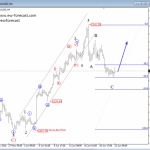The Rising Popularity of Vanilla Options

Options volumes continue to rise as increasing volatility is keeping investors focused on purchasing protection against adverse movements in riskier assets. The Option Clearing Corporation which is the world’s largest equity derivatives clearing organization, announced in early September that cleared contract volume in August was up 33% from August 2014. OCC’s year-to-date average daily cleared contract volume is up 0.15% from 2014.
Options provide investors many different ways to take advantage of a change or no change in the dynamic or direction of an underlying asset. The most popular vanilla option strategies are buying calls or puts. A call is the right but not the obligation to purchase a security on or before a certain date. A put option is the right, but not the obligation to sell a security at a certain price on a specific date. The benefit to an investor who purchases a call option or a put option is that the most they are risking is the premium they pay for this right.
When markets move into a tumultuous period, as was witness in August beginning with the decline in the Chinese currency and then global stock markets, investor demand for protection increases dramatically. The demand for products such as options that will protect a portfolio from adverse moves increases dramatically, pushing options volumes higher.
Buying options is not the only strategy that is used by investors, as there needs to be a seller for every buyer. When markets are calm, many investors use a covered call strategy to enhance their investment income. A covered call strategy is one where an investor purchases a stock, and then sells a call option on the same stock, at a higher strike price than the current price of that stock (you could also sell a call with a strike that is the same price or even lower).
The strategy is called covered call as the investors option is covered by the stock. If the price of the stock rises above the strike price, the call will be called away from the investor. The investor will gain from the price increase to the level of the strike price and will also be able to keep the premium received from selling the call. If the price of the stock increases, but does not rise above the strike of the call, the investor will gain from the increase of the stock price, but the stock will not be called away. Here the option will expire worthless and the investor will be able to keep the premium. A downward move in the stock price is also protected by the premium received by selling the call option.
Multiple strategies on vanilla options have recently increased options volume, and when combined with increasing volatility, make this derivative an attractive investment instrument.
Find more: Contributing Authors




























